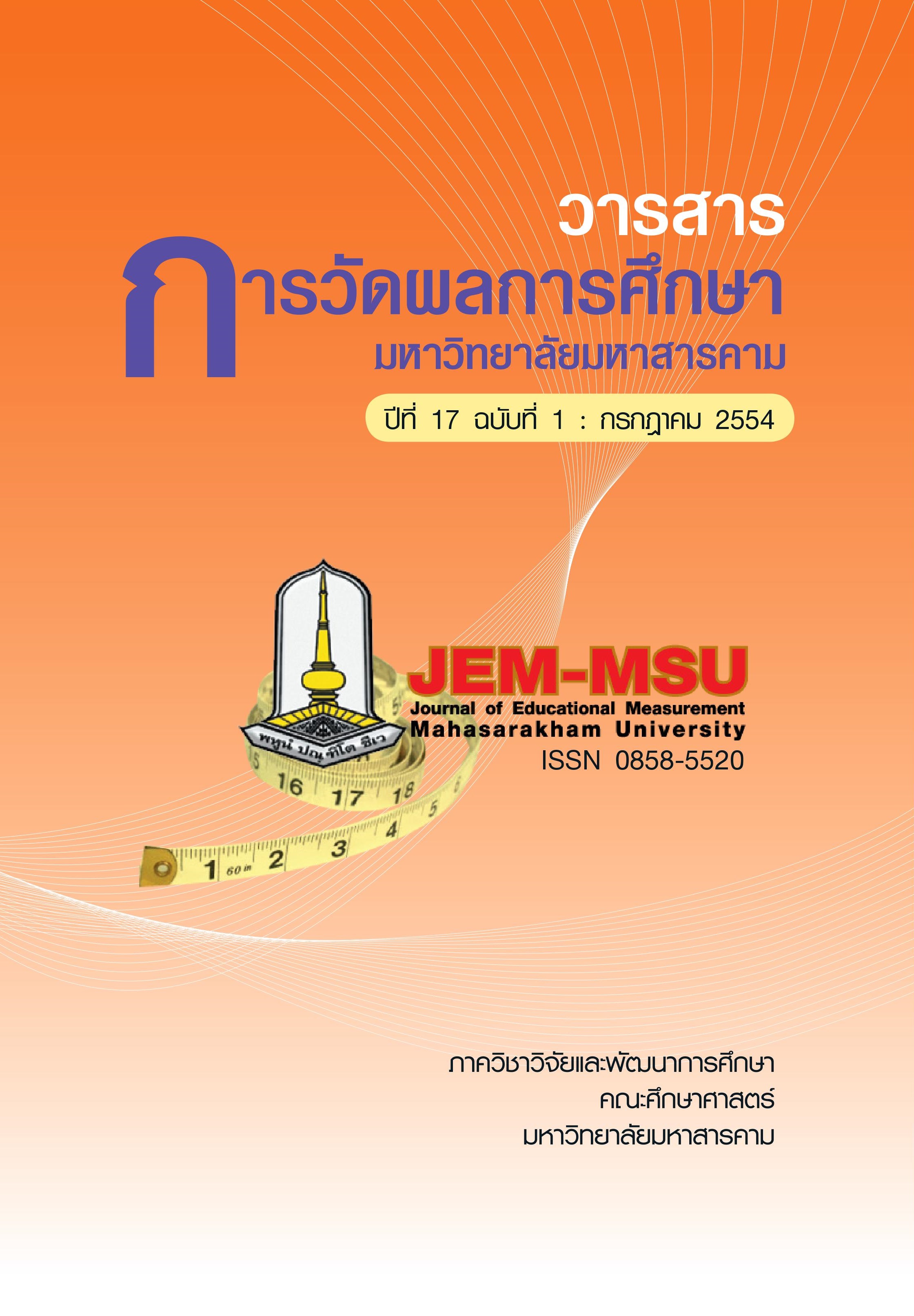The Causal Factors Affecting Mathematics Problem-Solving Ability of Prathomsueksa 6 Students
Main Article Content
Abstract
Mathematics problem-solving ability originates from various causal factors. This it is
necessary for teachers to understand different factors in order to develop a model of
mathematics learning-teaching activities to be in accordance with learners, needs. This
research aimed to examine relationships and to construct a model showing relationships of
causal factors affecting mathematics problem-solving ability. The study was conducted in 2
stages : stage 1 determined the model showing relationships of the causal factors affecting
mathematics problem-solving ability which was the model of relationships based on the
hypothesis. Stage 2 tested the validity of the model of relationships based on the hypothesis
and improved it to be the adjusted model of relationships. The sample consisted of 357
prathomsueksa (grade) 6 students from 15 schools under the offce of Amnat Charoen
Educational service Area, obtained using the multi-stage random sampling technique.
There were totally 9 independent variables including : prior knowledge, calculating skills,
language understanding skills, attitude toward mathematics, achievement motivation,
teaching quality attention to learning, self-concept, and self-discipline. The collected data
were analyzed using path analysis and using LISREL 8.30 program.
The research fndings were as follows :
1. The causal factors affecting mathematics problem-solving ability of prathomsueksa
6 students had 9 variables according to the established hypothesis
2. The causal factors affecting mathematics problem-solving ability of prathomsueksa
6 students showed positive relationships with mathematics problem-solving ability at the .01
level of signifcance. Predictive coeffcient (R2) was .215, showing that all of the variables could
cooperatively explain the variance of mathematics problem-solving ability at 21.50 percent.
3. The model of showing relationships of the causal factors affecting mathematics
problem-solving ability of prathomsueksa 6 students could be shown in the fgure below
he variables with influences in the form of being direct causes on mathematics
problem-solving ability of prathomsueksa 6 students included : calculating skills, language
skills, and self-concept.
The variables with influences in the form of being direct and indirect causes on
mathematics problem-solving ability of prathomsueksa 6 students included : prior knowledge,
attitude toward mathematics, and teaching quality.
The variables with influences in the form of being indirect cause on mathematics
problem-solving ability of prathomsueksa 6 students included : achievement motivation,
attention to learning, and self-discipline.
In conclusion, the fndings of this research could be used as information for
mathematics learning-teaching development in terms of problem-solving skills to
be more effcient.
Article Details
The content and information contained in the published article in the Journal of Educational Measurement Mahasarakham University represent the opinions and responsibilities of the authors directly. The editorial board of the journal is not necessarily in agreement with or responsible for any of the content.
The articles, data, content, images, etc. that have been published in the Journal of Educational Measurement Mahasarakham University are copyrighted by the journal. If any individual or organization wishes to reproduce or perform any actions involving the entirety or any part of the content, they must obtain written permission from the Journal of Educational Measurement Mahasarakham University.


